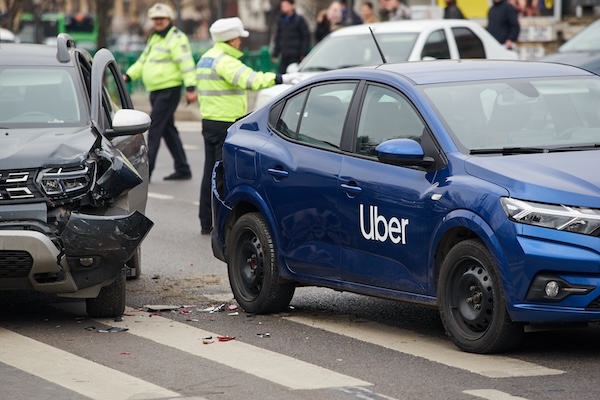Hurt by a reckless driver in Atlanta? Speak with an Atlanta reckless driving accident lawyer today. Our Georgia-licensed, Atlanta-based attorneys move fast to secure evidence and pursue full compensation for your medical bills, lost wages, and pain and suffering. Free consultation. No fee unless we win. Call 866-4-LAW-411 24/7 or schedule online now.
Get Help Now
Don’t wait to protect your rights. Call us today for your free case review.
Georgia Reckless Driving Law (O.C.G.A. § 40-6-390): Definition, Penalties, Civil Impact
Legal Definition and Elements
Under O.C.G.A. § 40-6-390, reckless driving happens when someone drives with willful disregard for the safety of others or property. It’s more than just a mistake—it’s a conscious choice to drive dangerously. According to Georgia DOT data, thousands of speed-related crashes occur yearly in metro Atlanta—underscoring the need to act quickly.
Common Reckless Behaviors (Speeding, DUI, Road Rage, Racing)
Reckless driving includes:
- Speeding way over the limit
- Weaving through traffic
- Running red lights on purpose
- Street racing
- Driving drunk or high
- Aggressive tailgating
Local ordinance and state laws (e.g., Georgia’s ‘Super Speeder’ O.C.G.A. § 40-6-189) can support a finding of recklessness.
Criminal vs. Civil: How a Conviction Helps Your Injury Claim
Reckless driving is a misdemeanor crime in Georgia. But you can also file a personal injury lawsuit to recover damages. The criminal case and your civil claim are separate—you can pursue compensation even if the driver isn’t convicted.
Penalties (Fines, Jail, License Points)
Criminal penalties include fines up to $1,000 and possible jail time. A conviction helps prove negligence in your civil case, making it easier to win compensation.
How Reckless Driving Crashes Happen in Atlanta
Speeding, Tailgating, Illegal Passing, Red Lights
Speed kills. When drivers race through Atlanta’s busy streets, they can’t stop in time. Tailgating at high speeds gives no room for error. Impatient drivers who pass illegally or blow through red lights cause devastating T-bone and head-on crashes.
Distracted/Impaired Driving and Road Rage
Texting, drinking, or drug use turns any driver into a deadly weapon on our roads. Angry drivers and illegal racers treat Atlanta streets like their personal playground, putting innocent lives at risk. Some reckless drivers make things worse by fleeing. We help track them down and hold them accountable.
Commercial Trucks and Rideshare (Uber/Lyft) Insurance Layers
When truck drivers or rideshare drivers drive recklessly, the results can be catastrophic. Multiple insurance policies may apply. When the app is on and the driver is en route or on a trip, Uber/Lyft typically provide up to $1,000,000 in third-party liability coverage.
Atlanta Hotspots for Reckless Driving Crashes (I-75/85, I-285, GA-400, Peachtree)
The I-75/I-85 Downtown Connector and I-285 see some of Atlanta’s worst crashes. Heavy traffic and high speeds create perfect conditions for reckless driving accidents. GA-400 and busy areas like Peachtree Street see constant reckless driving. Midtown and Buckhead’s mix of business and nightlife attracts dangerous drivers. Reckless drivers don’t just stick to highways. School zones and construction areas see terrible crashes when drivers ignore safety rules.
Common Injuries and Symptoms to Document
Head injuries can change your life forever. Even “minor” concussions need proper treatment and documentation. The violent forces in these crashes often cause serious spine injuries that require months of treatment. High-speed impacts break bones and cause internal bleeding that may not show symptoms right away. The trauma of a reckless driving crash can cause lasting emotional harm. Pain and suffering damages include this psychological impact.
What To Do After an Atlanta Crash: Step-by-Step Checklist
Police Report and Scene Documentation
- Call 911 immediately
- Get the police report number
- Take photos of everything—damage, injuries, road conditions, traffic signs
- Get witness names and numbers
- Document the scene thoroughly
- Don’t admit fault or discuss the accident
- Contact an attorney before talking to insurance companies
Medical Care and Tracking Bills
See a doctor immediately, even if you feel okay. Keep all medical bills and treatment records.
Spoliation Letter, EDR Requests, and Camera Footage
A spoliation letter legally requires preservation of dashcam/surveillance footage and other evidence. The event data recorder (EDR/black box) shows speed, braking, and other crucial facts about the crash. EDR data and cell records often require owner consent, a preservation letter, or subpoena/court order—starting fast helps secure this evidence.
Speak to an Attorney Before the Insurance Adjuster Calls
The insurance adjuster works for them, not you. Get legal help before talking to them. Report the crash but don’t give recorded statements without legal advice.
Don’t Wait—Evidence Disappears Fast
Video gets deleted. Witnesses forget. The sooner you call, the stronger your case.
Schedule a free consultation today
How Our Atlanta Attorneys Prove Negligence, Causation, and Damages
Key Evidence (Police, Witnesses, Video, EDR, Cell Records, Toxicology)
We gather every piece of evidence to prove the driver breached their duty of care through negligence. We immediately secure cell phone records, toxicology reports, and other evidence before it disappears.
Expert Reconstruction and Medical Causation
Our accident reconstructionist team and expert testimony prove exactly how the crash happened. Medical documentation proves causation—that the crash caused your injuries. Expert witnesses prove the full extent of your injuries and future needs.
Comparative Negligence (O.C.G.A. § 51-12-33)
Under Georgia’s comparative negligence (50% bar rule), you can recover damages if you’re less than 50% at fault. If you’re 20% at fault and damages are $100,000, your recovery is reduced to $80,000; at 50% or more, you recover nothing (O.C.G.A. § 51-12-33).
- Less than 50% at fault: You can recover damages reduced by your percentage of fault
- Example: 20% at fault = 80% recovery of total damages
- 50% or more at fault: No recovery allowed under Georgia law
Insurance in Georgia: Minimum Limits, UM/UIM, MedPay, Hit-and-Run
Georgia Minimum Liability (25/50/25)
Georgia’s minimum liability limits are $25,000 per person/$50,000 per accident for bodily injury and $25,000 for property damage. These minimums are often not enough for serious crashes.
- Georgia minimums: 25/50/25
- $25,000 per person bodily injury
- $50,000 per accident bodily injury
- $25,000 property damage
UM/UIM: Add-On vs. Reduced-By Coverage
Your Uninsured/Underinsured Motorist (UM/UIM) coverage protects you when the reckless driver lacks adequate insurance. Georgia offers ‘add-on’ UM that stacks on top of the at-fault driver’s limits, versus ‘reduced-by’ UM that offsets—add-on generally provides better protection.
- UM/UIM: add-on vs reduced-by
- Add-on coverage stacks on top of at-fault driver’s limits
- Reduced-by coverage offsets against at-fault driver’s limits
MedPay, Health Insurance, and Liens
Medical Payments (MedPay) coverage covers immediate medical costs regardless of fault. We address health insurer subrogation and hospital liens (O.C.G.A. § 44-14-470 et seq.) and negotiate reductions so more of the settlement goes to you.
First-Party vs. Third-Party Claims; Phantom Vehicle Claims
We handle both claims against your insurer and the at-fault driver’s company. Even if the driver flees, you may have coverage options for hit-and-run claims.
Claims Process and Timeline (Demand, Negotiation, Lawsuit, Trial)
We file comprehensive claims with all available insurance coverage. Our demand letters detail every damage and push for maximum compensation. When insurers won’t be reasonable, we file suit to protect your rights. Most cases settle, but we prepare every case as if it’s going to trial. Cases can resolve in months or take years, depending on complexity and injuries.
Damages: Medical Bills, Lost Wages, Pain and Suffering, Punitive, Diminished Value
Economic Damages:
- Medical bills (past and future)
- Lost wages and earning capacity
- Property damage
Non-Economic Damages:
- Pain and suffering
- Emotional distress and PTSD
- Loss of enjoyment of life
You deserve compensation for the pain and trauma you’ve endured. Punitive damages punish especially dangerous behavior and deter future recklessness. Your property damage and diminished value claim covers the reduced value of your repaired vehicle.
Deadlines: Statute of Limitations and Ante Litem Notices (With Citations)
Georgia’s statute of limitations (Georgia: 2 years for personal injury, 4 years for property damage) gives limited time to file. Property damage claims have more time, but don’t wait. In Georgia, ante litem notices are due within 6 months for cities (O.C.G.A. § 36-33-5), 12 months for counties (O.C.G.A. § 36-11-1), and 12 months for the State (O.C.G.A. § 50-21-26). Evidence disappears. Witnesses move. Starting early protects your claim.
Criminal Charges vs. Civil Claims: Using Citations and Convictions
Criminal cases and civil claims run separately but can help each other. Traffic convictions provide powerful evidence of fault in your civil case.
Fatal Crashes: Wrongful Death and Survival Actions
Georgia law specifies who can file a wrongful death claim and recover damages. Typically the spouse (for the family), then children, then parents if no spouse/children; an estate claim can be brought by the personal representative. Families can recover both economic and non-economic losses through wrongful death and survival action claims. All funeral costs and family support losses are recoverable.
Why Hire a Local Atlanta Lawyer (Fulton, DeKalb, Cobb Courts)
We know Atlanta municipal ordinances and Georgia laws inside and out. Our experience in Fulton County State Court, DeKalb County State Court, and Cobb County State Court means we know the judges and procedures. We work with Atlanta’s best accident reconstruction teams and medical experts. We know these dangerous Atlanta corridors (I-285, I-75/85, GA-400) and their unique hazards. You’ll work directly with experienced attorneys, not just paralegals.
Contact Us for a Free Consultation
What to Bring to Your Free Consultation
- Police report number
- Insurance cards (yours and the other driver’s)
- Medical records and bills
- Photos and videos from the scene
- Witness contact information
Call us today for your free consultation. We’ll review your case, explain your options, and start fighting for the compensation you deserve. Remember, you pay nothing unless we win.
Don’t Let Them Get Away With It
Reckless drivers must be held accountable. We’re ready to fight for you.
FAQs
Reckless driving means operating a vehicle with willful disregard for safety. This includes excessive speeding, aggressive driving, racing, and DUI.
Call 911, get medical help, document everything, and contact an attorney before talking to insurance companies.
You have two years for injury claims and four years for property damage in Georgia.
Medical bills, lost wages, pain and suffering, property damage, and sometimes punitive damages.
Through police reports, witness statements, video evidence, EDR data, and expert testimony.
While you can file alone, independent research and industry data indicate represented claimants typically recover more; we can share sources on request.
Nothing upfront. We work on contingency—you only pay if we win.
Your UM/UIM coverage can provide compensation when the at-fault driver lacks adequate insurance.
Simple cases may settle in months. Complex cases can take a year or more.
They claim you’re partially at fault, injuries were pre-existing, or treatment was unnecessary.
Every case is different. Value depends on injuries, medical costs, lost income, and impact on your life.
Yes, when the driver’s behavior was especially dangerous or malicious.
Yes, a conviction provides strong evidence of fault in your civil claim.
Immediately. This evidence can be overwritten or deleted within days.
Yes, but there may be subrogation and medical liens to address when your case settles.
Yes, as long as you’re less than 50% at fault. Your recovery may be reduced by your percentage of fault under Georgia’s comparative negligence law.
When the rideshare app is on and the driver is en route or on a trip, Uber/Lyft typically provide up to $1,000,000 in third-party liability coverage for injuries and damages.
You have the right to change attorneys at any time. Fee arrangements between attorneys are typically handled without additional cost to you, though specifics depend on your existing agreement.



